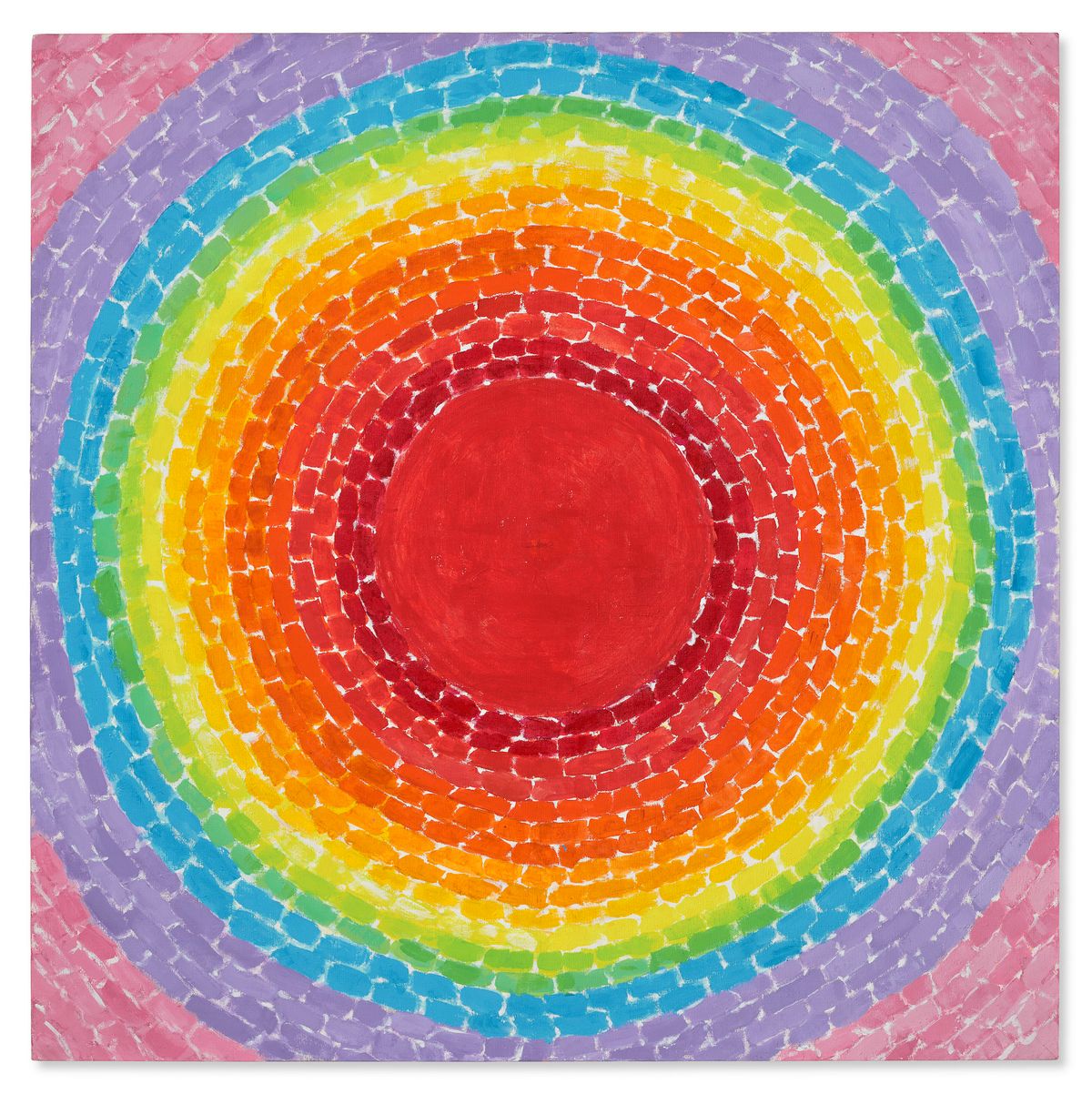The single-owner sale of art from the collection of Gerald Fineberg, the late Boston real estate developer and hotelier—dubbed “A Century of Art”—fetched a shockingly low result of $124.7m at Christie’s in New York on Wednesday evening (17 May).
Still, only five of the 65 lots offered failed to sell, for an impressive sale through rate of 91% by lot. The tally, before fees, landed significantly below Christie’s pre-sale expectations of $163m to $235m. Including fees, that is the buyer’s premium tacked on for all sold lots, the collection brought $153m.
None of the entries were backed by house or third-party guarantees, making it an exception among recent high-stakes evening auctions and provided a sobering, realistic picture of the market’s mood. What saved the evening from a bloodbath of buy-ins was the radical drop in reserves—the confidential minimum price at which a lot can sell and approved by the seller. No lots were withdrawn prior to the sale and four artist records were set.
The evening got off to a spirited start with Simone Leigh’s salt-fired porcelain sculpture 109 (Face Jug Series) (2019), which sold for its high estimate, $500,000 ($630,000 with fees), and Beauford Delaney’s blissful in spirit, all-over abstraction, Composition Bleu from 1960, which rose to $620,000 ($781,200 with fees), more than double its low estimate of $300,000.
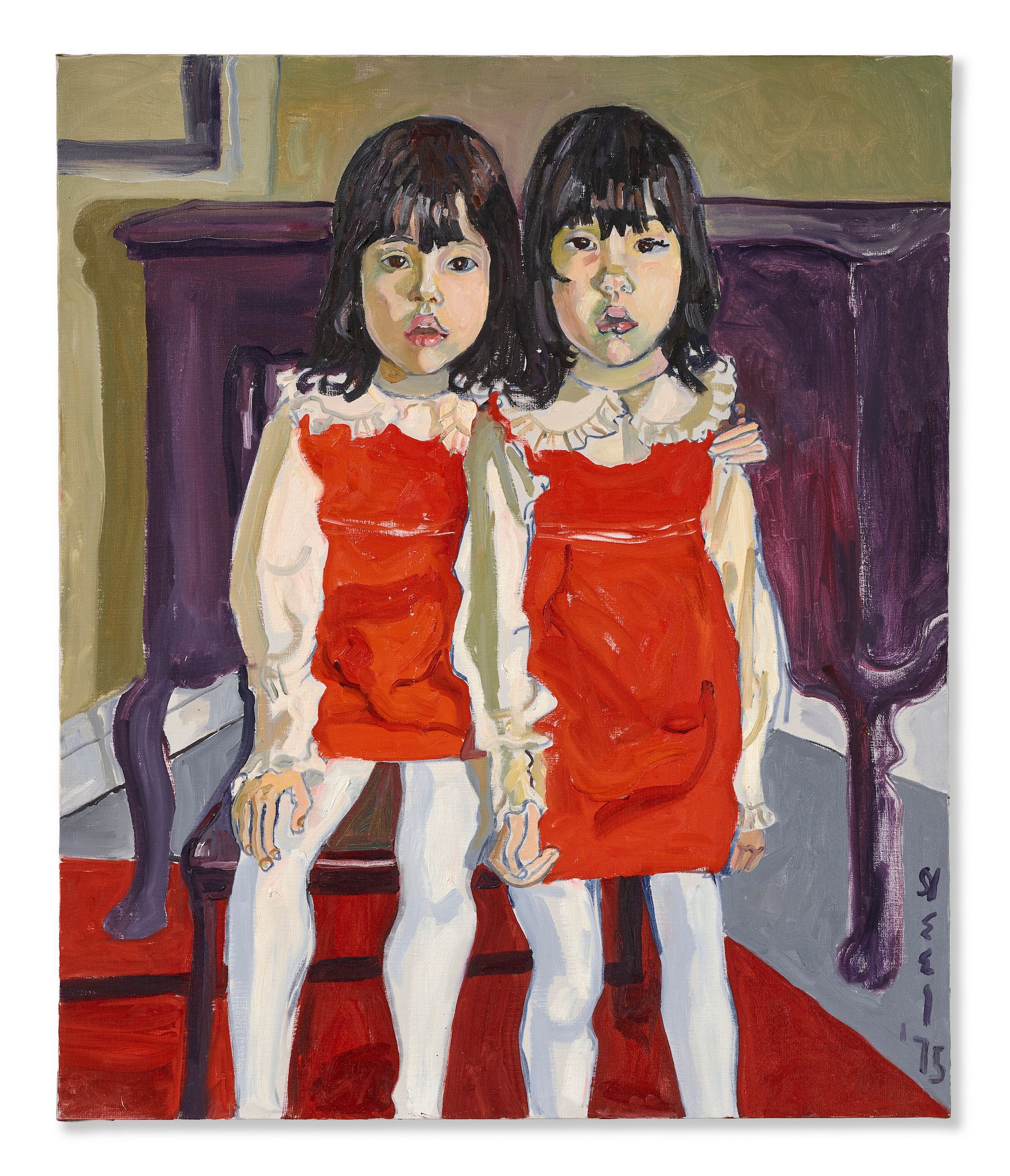
Alice Neel, The De Vegh Twins, 1975 Courtesy Christie's Images Ltd
Populated with many works by artists of colour and women, the sale echoed the current market mood, as partly evidenced by Ruth Asawa’s graceful, galvanised steel and brass wire sculpture Untitled (S.410, Hanging Seven-Lobed, Three-Part Continuous Form (Stripes) (around 1955), which fetched $2m ($2.4m with fees), matching its low estimate. Alice Neel’s endlessly charming double portrait The De Vegh Twins (1975) brought $2.1m ($2.5m with fees), well ahead of its $1.8m high estimate. And Alma Thomas’s radiant abstraction A Fantastic Sunset (1970) surpassed its $3m high estimate to sell for a record $3.2m ($3.9m with fees) to New York art advisor Todd Levin.
Fineberg’s eclectic range and adventurous taste—perhaps fueled by his role as a trustee of the Institute of Contemporary Art in Boston—echoed throughout the evening. As private art dealer Michael Black said of him in a magazine article some years ago: “He gets fidgety if two weeks have gone by and he hasn’t bought anything.”
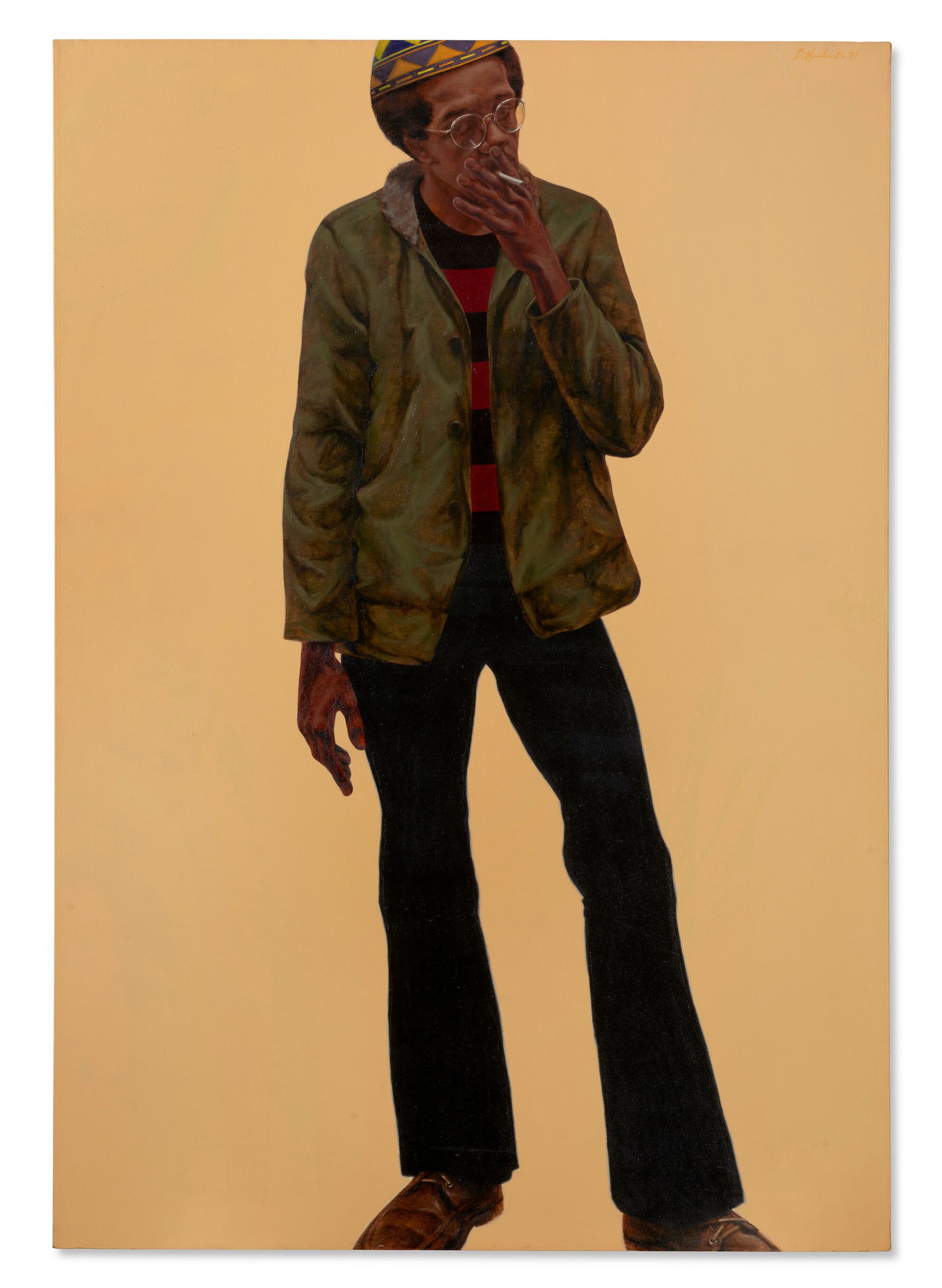
Barkley L. Hendricks, Stanley, 1971 Courtesy Christie's Images Ltd.
His interests encompassed varied approaches to portraiture, such as Barkley L. Hendricks’s six-foot-tall canvas Stanley (1971), depicting a skull-capped young man—the now-celebrated abstract painter Stanley Whitney—smoking a cigarette against a neutral backdrop. It sold for a record $5m ($6.1m with fees), matching its low estimate.
The volleys between abstraction and figuration went on with Lee Krasner’s Abstract Expressionist composition Untitled (1956-59 ) which sold for $3.5m ($4.2m with fees), well below its low estimate of $6m—a seemingly stark sign of the times. Estimates for these major evening sales are often set as much as six months before the auction and the economic climate has certainly changed since November.
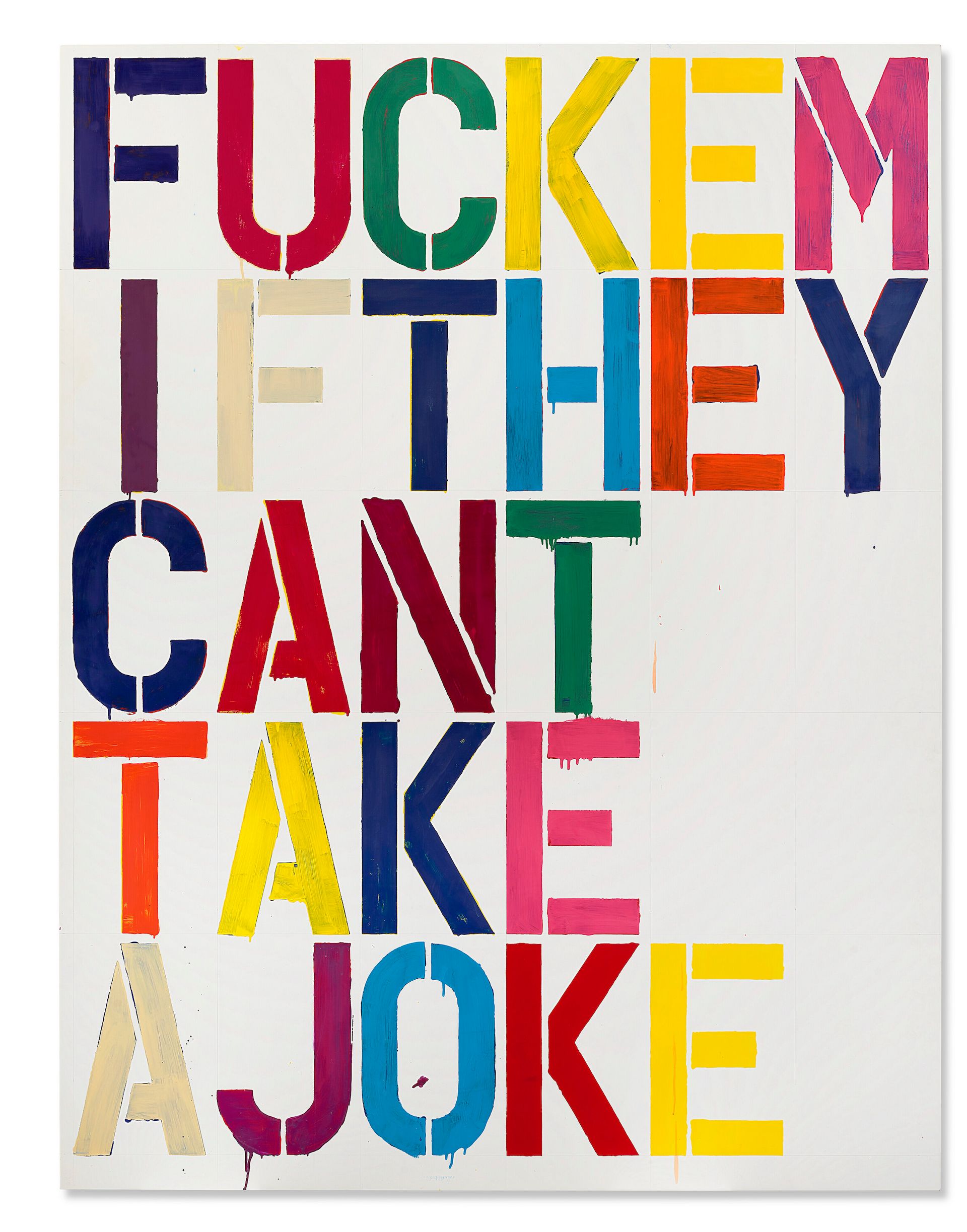
Christopher Wool, Untitled, 1993 Courtesy Christie's Images Ltd.
In that same underperforming vein, Christopher Wool’s Untitled (1993), a multicoloured and stencilled word painting (“FUCK EM IF THEY CANT TAKE A JOKE”), sold to Andrew Fabricant of Gagosian gallery for the top lot price of $8.4m ($10m with fees), far short of its $15m low estimate. Fineberg acquired the painting in 1994 on the primary market for an undisclosed price from the artist’s gallery, Luring Augustine.
Another star lot and just as challenging, Gerhard Richter’s large-scale painting Badende (Bathers) (1967)—depicting a group of nude female figures in a blurred, sepia composition—made $8m ($9.6m with fees), a far cry from its estimate of $15m to $20m. The painting, from German artist’s storied series of bathers, was first shown in Munich at Galerie Heiner Friedrich in 1967. Fineberg acquired it 20 years later from New York dealer David Nolan.
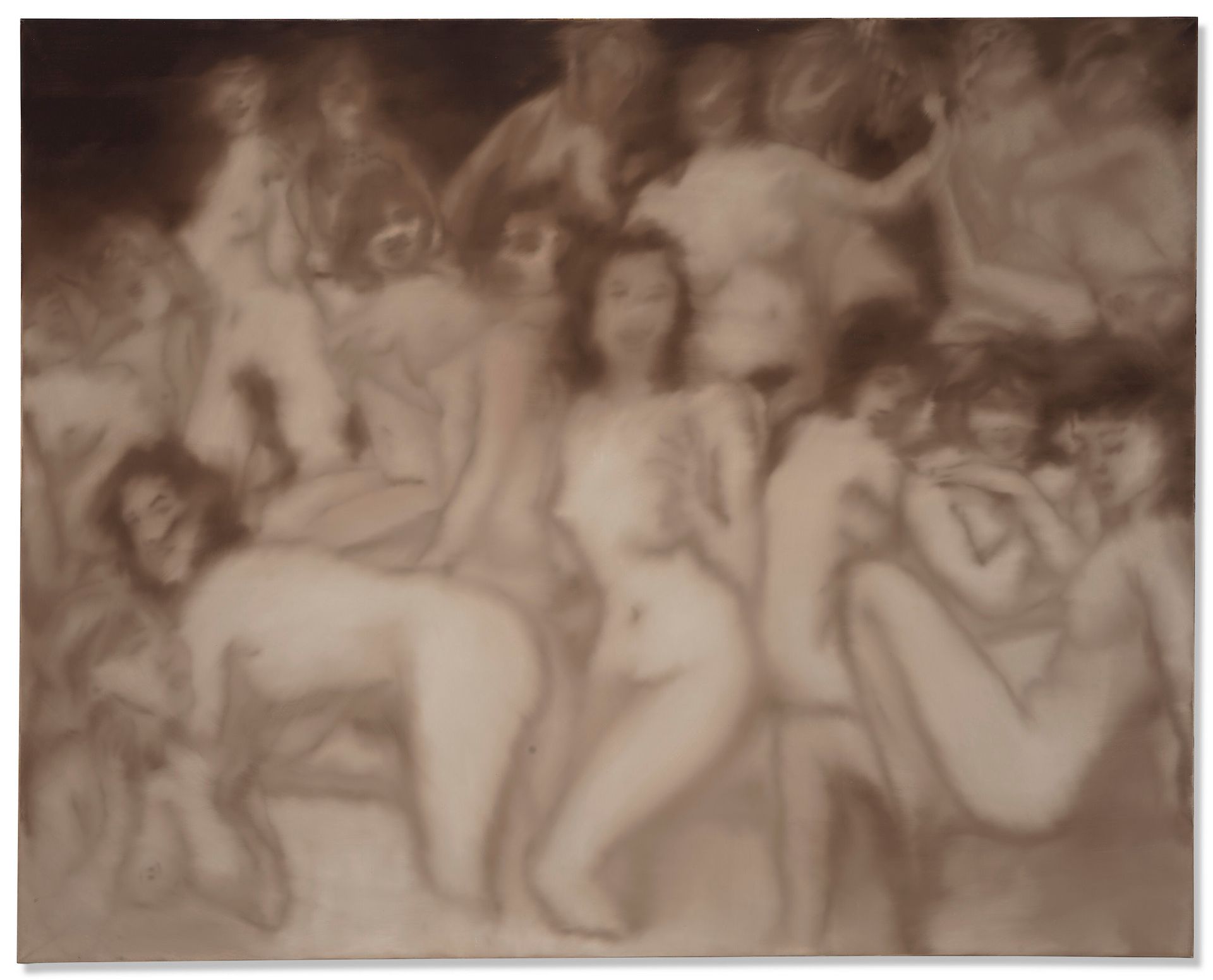
Gerhard Richter, Badende, 1967 Courtesy Christie's Images Ltd.
Still on the German front, photographer Andreas Gursky’s wide-angled chromogenic print Chicago Board of Trade (1997), from an edition of six, sold to Bernard Lagrange of Gagosian Art Advisory for its low estimate, $600,000 ($756,000 with fees). Thomas Struth’s Tokyo National Museum (1999), in the same medium, went for $420,000 ($529,200 with fees), safely within its pre-sale estimate range of $300,000 to $500,000. The image of Eugène Delacroix’s Liberty Leading the People (1830) was taken when the iconic painting was on loan to the titular Japanese museum from the Musée du Louvre.
Some of the works from Fineberg’s collection reflect past market favourites and themes, such as Richard Prince’s Nurse Cathy (2004), for which the artist appropriated a vintage pulp fiction paperback cover. It hammered for its low estimate of $4m ($4.8m with fees). Jeff Koons’s stainless steel sculpture Kiepenkerl (Humpty Dumpty) (1987) sold for $1.6m ($1.9m with fees), just over halfway to its low estimate of $3m. Fineberg acquired it in 2000 from the late dealer and curator Diego Cortez.
Another Cortez provenance came with Jean-Michel Basquiat’s Brain (1985), comprised of a bootblack stand perched on 27 wood blocks collaged with Xerox drawings in mixed media. It sold to a telephone bidder for $4.6 million ($5.6m with fees), near its $5m high estimate. Fineberg acquired it in 1990 and, 33 years later, it still retains a desirable “fresh to the market” air about it.
The sale also featured a fair sampling of works from the Abstract Expressionist era, such as Joan Mitchell’s Untitled (1958), which Fineberg acquired from a private collection in France in 2018. It sold for $5.4m ($6.5m with fees). Willem de Kooning’s colour-charged East Hampton III (1977) hammered for $3m ($3.6m with fees), or half of its $6m low estimate.
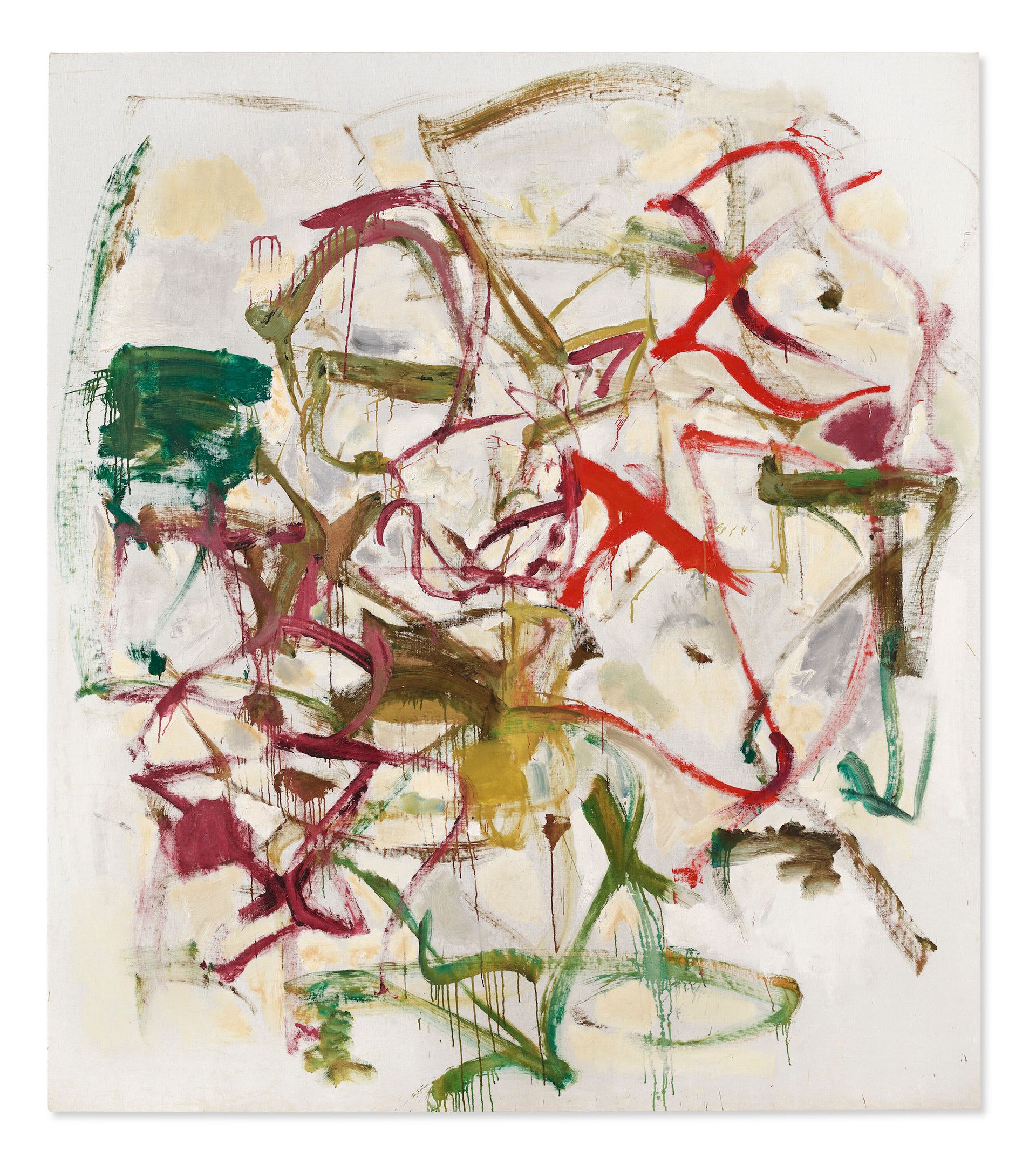
Joan Mitchell, Untitled, 1958 Courtesy Christie's Images Ltd.
A few Pop art pieces were on offer, too, including Tom Wesselmann’s crisply stylised Bedroom Painting #37 (1977). It sold to New York based dealer Diego Marroquin for $950,000 ($1.1m with fees), well below its $1.5m low estimate. Asked what he thought of the evening, Marroquin—who also snared Wool’s silkscreen print Untitled (2000) for $650,000 ($819,000 with fees)—said, “It shows where things are, it’s an adjusted reality.”
Trying to think of a blue-chi[ artist who isn’t represented in the Fineberg trove is no easy task. Naturally, the sale featured multiple Pablo Picassos, including the late portrait painting Buste d’homme lauré (1969), which made $7m ($8.4m with fees), well short of its $9m low estimate. The widely exhibited painting, formerly in the collection of the noted collector and dealer Heinz Berggruen, last sold at Sotheby’s Hong Kong in September 2018 for the equivalent of $7.8m with fees.
Christie’s chief executive Guillaume Cerutti succinctly conveyed the takeaway from the evening’s result, saying, “It’s a good reflection of the market.”
After Christie’s sells another 149 lots from Fineberg’s collection Thursday (18 May) morning, the evening auction action resumes Sotheby’s, with another doubleheader evening affair—one backed by a normal number of guarantees.


